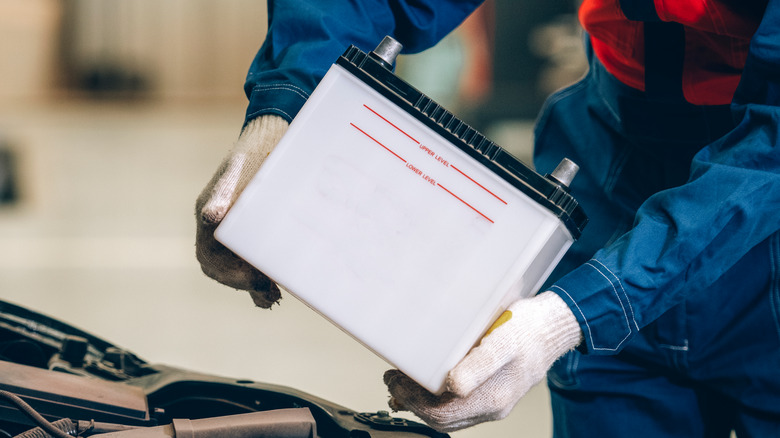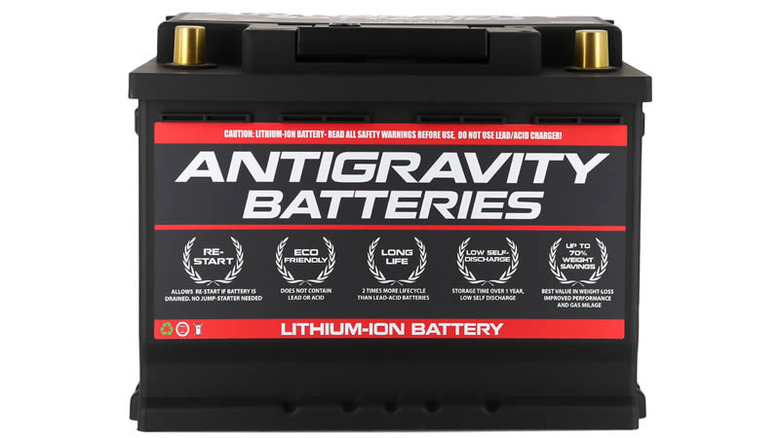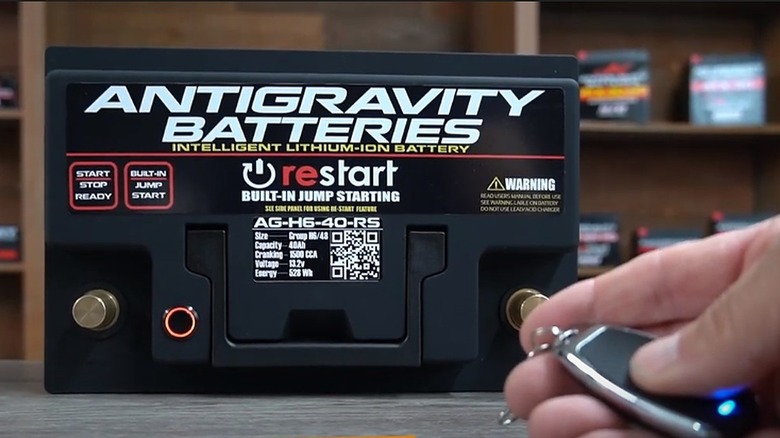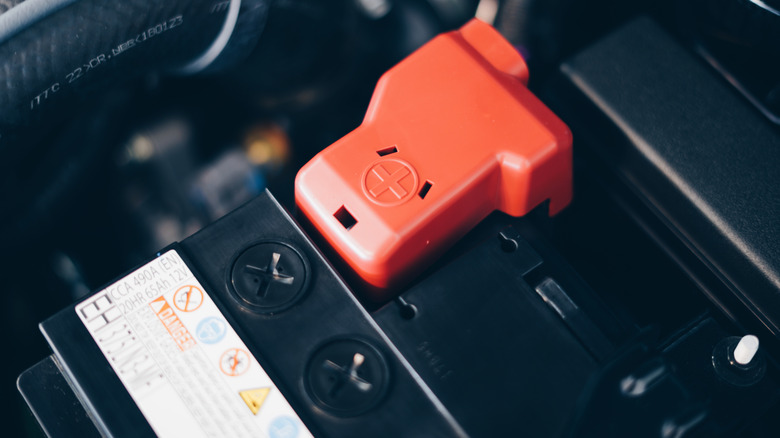What Is An Antigravity Car Battery And How Long Do They Last?
There are many types of car batteries. The most common are wet cell (lead-acid) and valve-regulated lead-acid (VRLA) batteries. According to the auto blog RepairSmith, the former requires frequent topping up with distilled water, while the latter is a sealed, maintenance-free battery that doesn't need electrolyte refilling. Also popular are AGM or Absorbent Glass Mat batteries that last longer than a lead-acid or VRLA battery. AGM batteries have innovative fiberglass separators or "glass mats" that absorb the electrolytes like a sponge. AGM batteries can recharge up to five times faster and last three times longer, but they cost more than conventional auto batteries.
You may have also heard about Antigravity car batteries and their many benefits. Antigravity Batteries is a Los Angeles-based company that specializes in lithium-ion car batteries for cars, trucks, SUVs, boats, tractors, and any machine requiring 6-Volt, 12-Volt, or 16-Volt power to operate. Antigravity batteries are among the smallest, lightest, and most potent car batteries that offer up to two times the cranking power of a standard lead-acid battery while weighing up to 80% less.
Antigravity Batteries use lithium-ion technology
The latest and greatest among car batteries is the same type you'll typically find in your laptop, smartphone, tablet, or electric car. An Antigravity battery is a lithium-ion 12-volt car battery that features the brand's proprietary RE-START (RS) technology, making it the world's first car battery with built-in jump-starting capabilities. You read that right: unlike lead-acid or VRLA batteries, Antigravity has a wireless jump starter courtesy of a new battery management system or BMS. It's essentially a circuit board that prevents the battery from functioning outside its safest range, essentially protecting the lithium battery from excessive discharging. The system will put the battery in Sleep mode like a laptop when the system detects abnormal drainage, like when you forget to turn off the headlights or interior lights after parking your vehicle for the night.
It also means that the battery will never run out of power to start your vehicle. An Antigravity battery automatically stores more than enough cranking power to start the engine after prolonged storage, even without connecting to a charger.
Antigravity battery RE-START system: How does it work?
When you need to jumpstart or charge a conventional lead-acid battery, you've got to get out of the vehicle, raise the hood, connect a portable jump starter or jumper cables, and pray that a friendly stranger or acquaintance drives by to give you a jump. You don't need to do those things if your vehicle has an Antigravity battery. Every Antigravity battery with RE-START comes with two key fobs. When the lithium battery is in Sleep mode, pressing a button on the keyfob will wake the battery. After pressing the button, start the engine, and that's it. You can jump-start the engine using the key fob while sitting inside your car without touching the battery or calling for assistance.
In some modern exotic vehicles or sports cars, having a dead battery means no access to entry points (like the hood or trunk). The BMS system in Antigravity Batteries prevents the lithium battery from excessively discharging. It always has reserve power that you can unleash by waking it up with the press of a button.
How long do Antigravity batteries last?
Your typical lead-acid or VRLA battery would probably last two years or more, while an AGM battery has a three to five-year lifespan. But with Antigravity Batteries' nifty battery management system (BMS), you can expect lithium-ion car batteries to last for eight to 10 years. There are many pros to considering an Antigravity lithium-ion battery for your car, but one drawback is worth considering.
On the positive side, lithium-ion car batteries have almost twice the cranking power for effortless engine starts. Antigravity's batteries also weigh up to one-third less than a lead-acid or VRLA battery and are more compact. Installing a lithium-ion car battery requires no special tools or modifications and it has a longer shelf life and lasts up to five times longer under duress. The RE-START system means you'll never have to deal with a dead battery again and Antigravity Batteries are available in all standard group sizes and fit all makes and models of cars, trucks, SUVs, vans, motorcycles, tractors, etc.
The big drawback? You guessed it: cost. An Antigravity battery could start from $659 to $2,000, making it a significant investment over a standard $250 lead-acid or VRLA battery. Sure, lithium-ion batteries cost more than the most expensive AGM batteries, but considering the extended lifespan and hassle-saving safety features, they're probably worth the investment in the long run.



